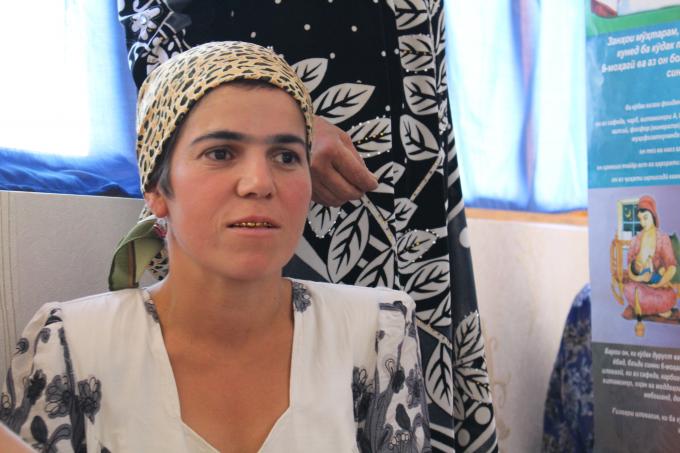A community health worker turned her life around
“My first two children were breastfed. I lived with my mother-in-law and she advised and supported me to breastfeed my two daughters,” said 33-year-old Gulchehra. “But she passed away when I had my third child.”
“My husband decided that the milk was insufficient and not good for the child, so he went out to buy formula milk and also fed our child other liquids,” she said. As a result, Gulchehra says her six-year-old son has a much weaker constitution compared to her three daughters. “My third child became really weak and sickly. He is always falling sick, unlike his three sisters. We have to spend a lot of money to take him to the doctor frequently and take extra care of him at home.”
“I had no knowledge about this at the time. If I had the knowledge then I would not have fed my child all that. My mother-in-law was not around at that time and I was not sure what was best, so I went ahead and listened to what my husband said.”
While pregnant with her fourth child, she was visited by the community health worker, who gave her advice on her nutritional needs and provided support in breastfeeding her child.
“She told me that I had to breastfeed my child exclusively so that she will be healthy and strong. So with her support I did that. Now my baby is very happy and healthy. Her cheeks are very rosy and she is very pretty,” she said.
Gulchehra regrets the decisions that she made while nursing her son six years ago, and does not want any woman in her community to go through the same experience as she did. “It is my mistake,” she said. “When I look at my child, I will feel terrible about the choices that I made that caused him to be so sickly. It is my fault that he is like this. I didn’t care for my child to the best of my abilities.”
Gulchehra joined a women’s group in her village, Karotog Village, Tursunzoda District, Tajikistan about a year ago. These women groups were set up with the support of Save the Children. By working through women’s groups, communities are empowered to take more responsibility for their health. Funds collected from households in the community also contribute to health services such as an emergency transportation fund for anyone who needs to be transported to a health facility on short notice.
Since joining the women’s group, she has been advising women in her community about breastfeeding the children exclusively for six months before transitioning to complementary feeding. “Now I tell my neighbours and my friends that they should not busy themselves with household chores but should instead focus on their children. The children should be the priority for us. I spend a lot of money now to take care of my son because he is so sickly. They should spend the time now and then they don’t have to worry about the children’s health when they grow up.”
The support Gulchehra received from her community health worker did not stop there. Her family was also advised on improving their living situation and nutritional status.
“When we were poor, she told me that I needed to tell my husband to go and get a job so that we can buy a proper house for our children to live in. Before, we had to rent or live with many other families in the same house. So my husband went and found a good job in a factory. After we bought our house and furniture, the community health worker said we should plant vegetables and fruit in our garden and buy some animals to rear. She said we can eat what we have and sell the rest for additional income that can be used to buy school materials and other things for the children.
“I am very happy about all the improvements in our life and it is all thanks to the health worker.
 Central Asia
Central Asia 